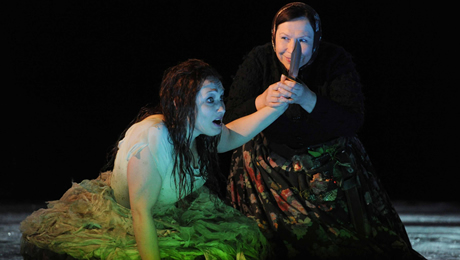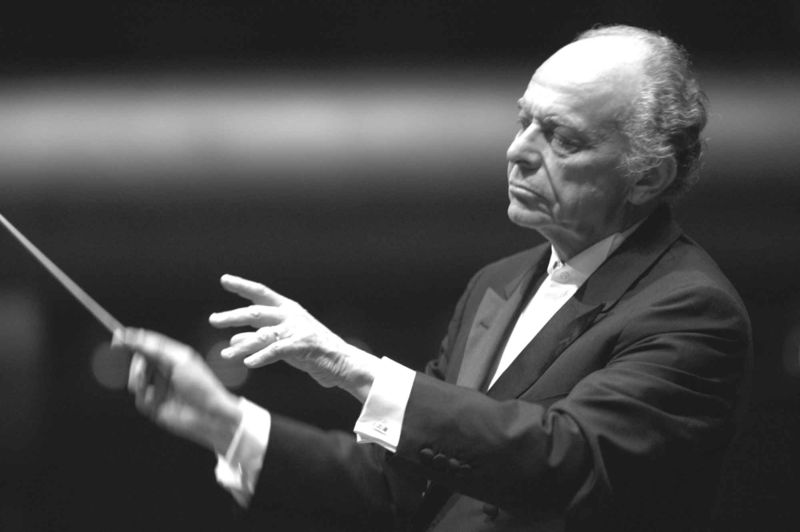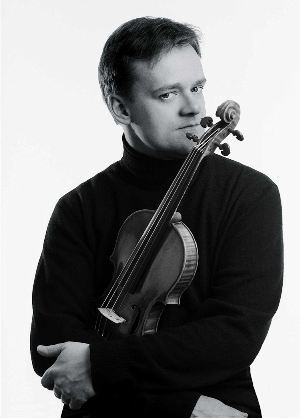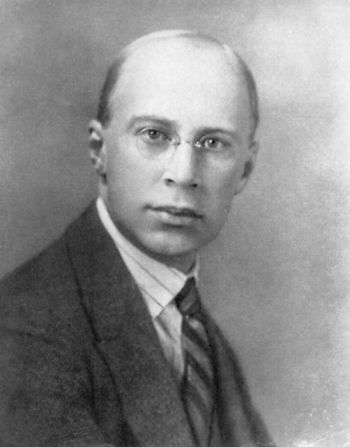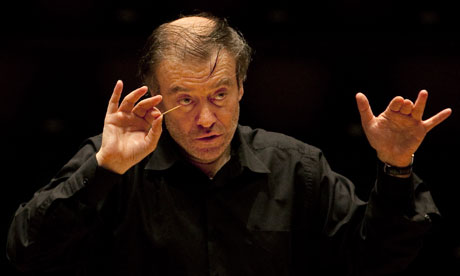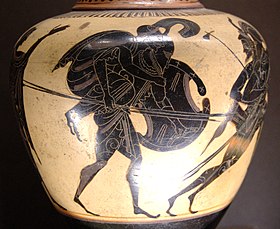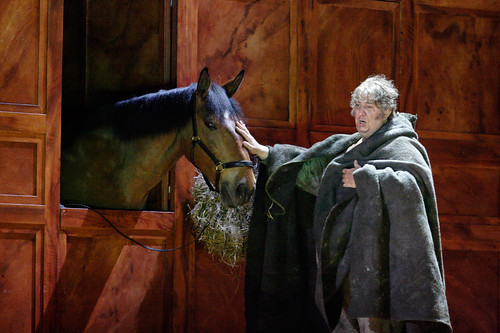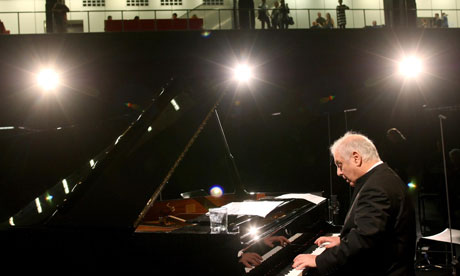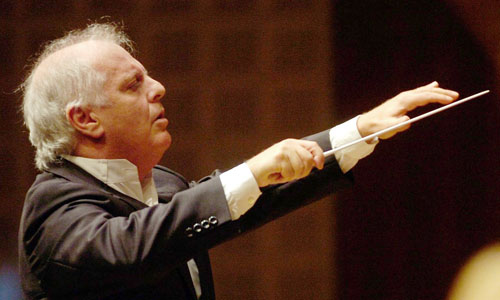Richard Wagner: The Flying Dutchman (concert performance)
 |
| Baritone Bryn Terfel |
Bryn Terfel The Dutchman
Anja Kampe Senta
Matti Salminen Daland
Martin Homrich Erik
Fabio Trumpy Steersman
Liliana Nikiteanu Mary
Zurich Opera Orchestra
Zurich Opera Chorus
Alain Altinoglu conductor
15 December 2012, Royal Festival Hall, London
****************
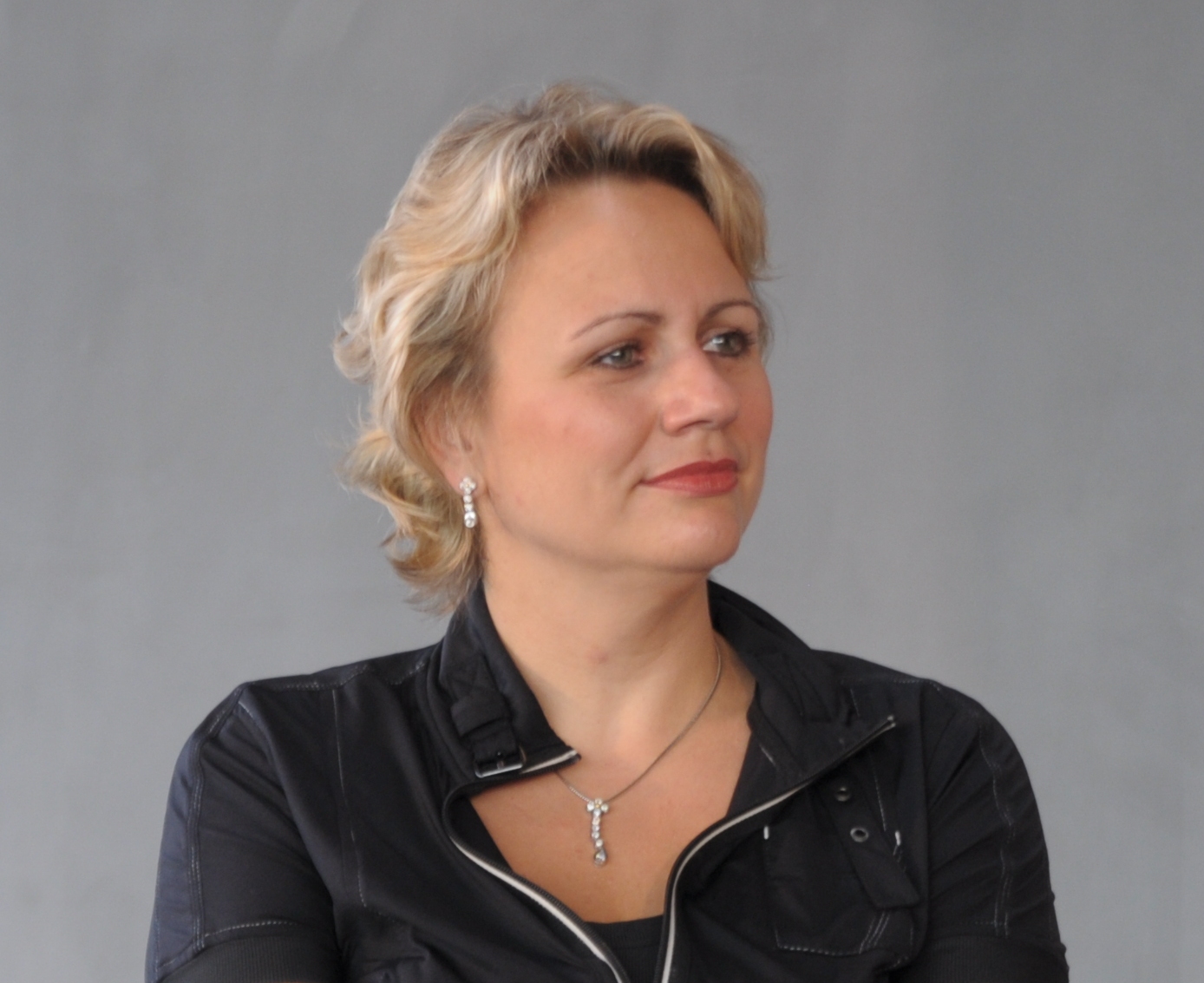 |
| Anja Kampe |
This performance of Wagner’s opera came straight from the Zurich Opera House. As a result this was not one of those stilted concert performances which howls for sets and props. The singers immediately created engaging relationships with eachother and the Festival Hall stage. When underpinned by Wagner’s orchestral narrative, the evening was as enthralling as any staged version.
The Steersman and Captain Daland brought out humour as well as atmosphere from the opening and only Mistress Mary was an awkward presence, seemingly in two minds whether to act out her role as a very coquettish 50 year old, or hold true to more formal conventions of concert performance.
Wagner’s opera tells the tale of the Flying Dutchman, doomed to sail the seas until the day of
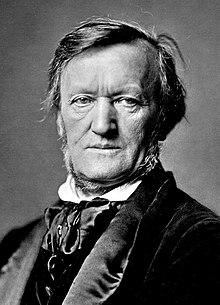 |
| Richard Wagner |
Alain Altinoglu was directing this performance and was unfussy and direct throughout. This brought greatest benefits when the orchestra reaches full frenzy as the human and ghostly ship crews dialogue in the final act. Elsewhere it was not a reading of the score to set pulses racing. Probably just as well though, because the singers were setting the air alight.
The evening had been marketed with Bryn Terfel as the headline act. What we actually received was a spectacular triumvirate of Wagner singers: Terfel sharing the stage with two unforgettable performances from Anja Kampe as Senta and Matti Salminen as Daland. When the three sang together at the climax of Act 3 this was clearly a vintage Wagner evening.
 |
| Matti Salminen |
Salminen was the first on stage and his interpretation combined a powerful voice (a little hoarse sounding although he is a ship captain) with a wry and engaging interpretation of the character. He brought a depth to the role that took it beyond the simple opportunism that it suggests. The Steersman was nicely clear and true.
The entrance of Terfel ratcheted up the temperature. This was a vocal masterclass as Terfel introduced the audience to the Dutchman’s massive existential angst. His delivery of the repeated calling for the end of the world was unforgettable. As ever his voice combined power with great attention to the words and a remarkable ability to speak very directly to the listener.
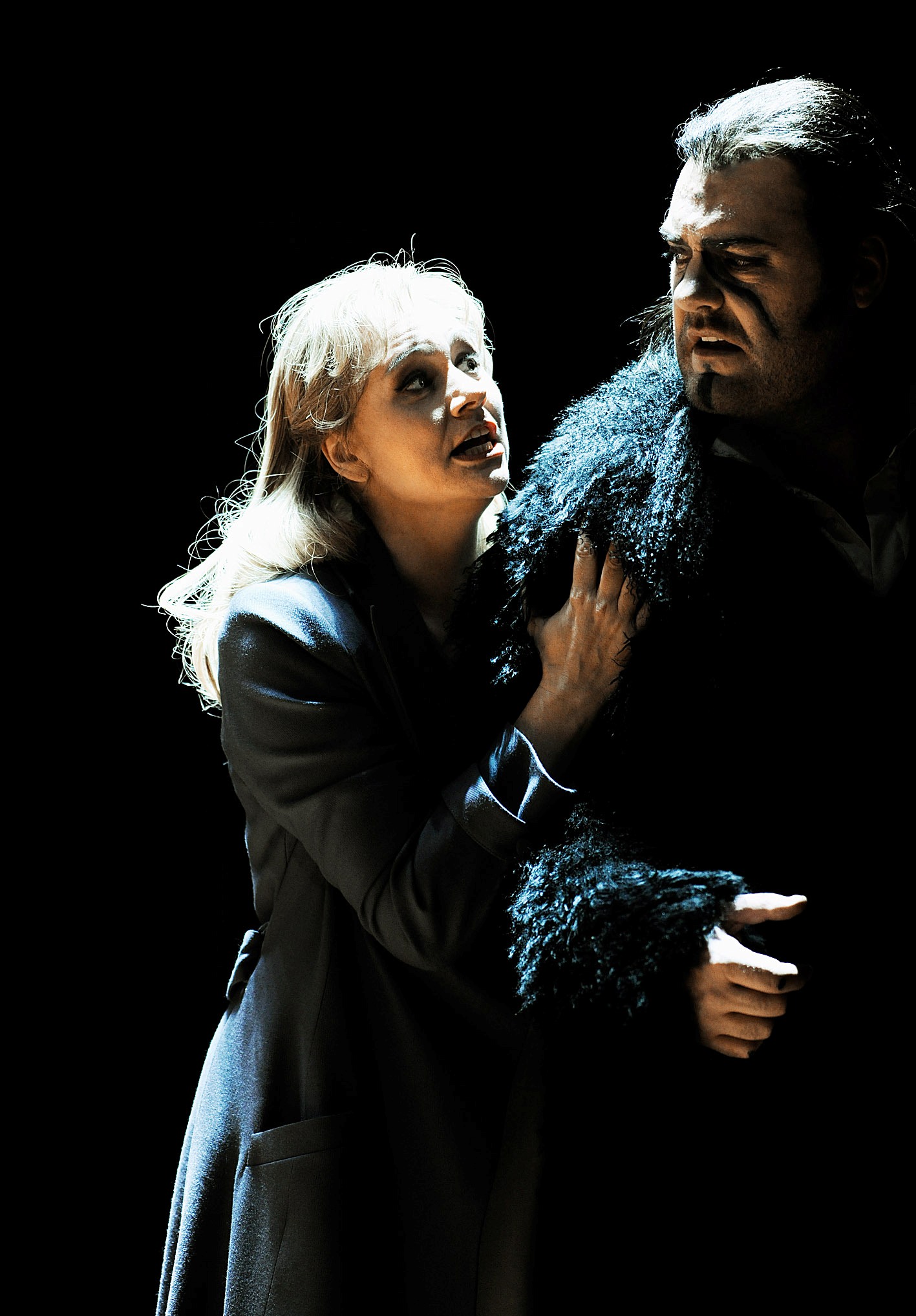 |
| Kampe and Terfel together in the Zurich production |
So far, all was going very well indeed. Then Act II began. After a bumpy spinning chorus and that slightly jarring Mary, Anja took control. Even before she sang she seemed to radiate the type of indwelling confidence that a Senta should have. After all she ignores all advice around her to wait for and then commit herself to a cursed ghost. Once she was singing it became clear that she had a powerful voice combined with real artistic bravery. She evidently has a few Sieglinde’s under her belt – I would pay good money to hear that on this showing. She was far from flawless – suffering a power-failure in the Act 2 duet with the Terfel – but she sang with a generosity and abandon which suited the role very well. Some Sentas may bring a more girl-ish aspect to both voice and acting, but Anja’s sledgehammer high notes at the opera’s conclusion were electric. She all but knocked holes in the back of the hall.
If Senta delivered the greatest thrills and spills Terfel’s Dutchman is difficult to imagine being bettered. The intensity of his stage presence and singing was breath-taking and when he and Senta finally clinch, the moment was remarkable for its strangeness: Senta seemingly in a trance, the Dutchman consumed with not missing his chance at redemption. Tender it was not. This was a triumph and a golden Wagner night.
| Opera House Zurich (above) or Royal Festival Hall (below): which would you choose? |



